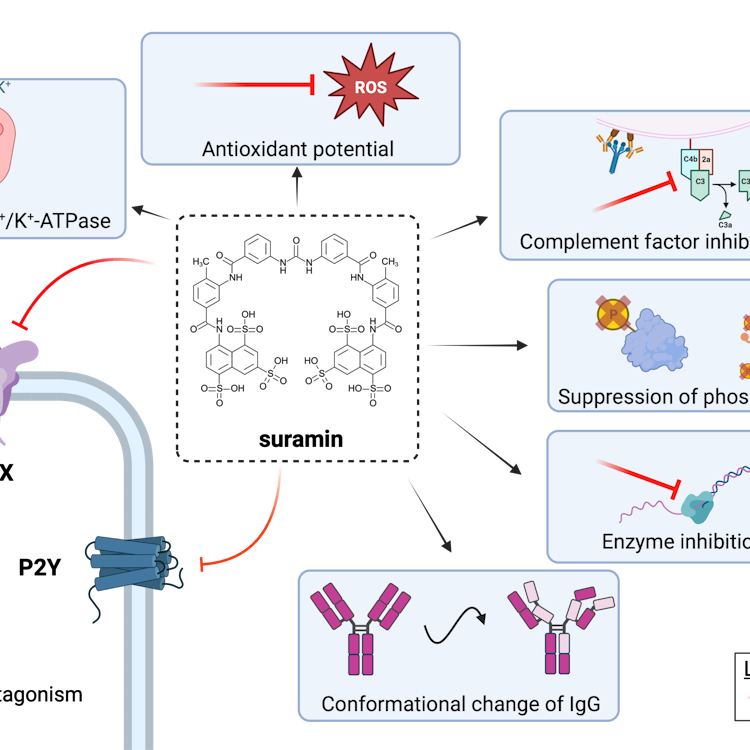
The bumpy road of purinergic inhibitors to clinical application in immune-mediated diseases
Purinergic signaling plays important roles throughout the body in the regulation of organ functions during and following the disruption of homeostasis. This is also reflected by the widespread expression of two families of purinergic receptors (P1 and P2) with numerous subtypes. In the last few decades, there has been increasing evidence that purinergic signaling plays an important role in the regulation of immune functions. Mainly, signals mediated by P2 receptors have been shown to contribute to immune system-mediated pathologies. Thus, interference with P2 receptors may be a promising strategy for the modulation of immune responses. Although only a few clinical studies have been conducted in isolated entities with limited success, preclinical work suggests that the use of P2 receptor inhibitors may bear some promise in various autoimmune diseases. Despite the association of P2 receptors with several disorders from this field, the use of P2 receptor antagonists in clinical therapy is still very scarce. In this narrative review, we briefly review the involvement of the purinergic system in immunological responses and clinical studies on the effect of purinergic inhibition on autoimmune processes. We then open the aperture a bit and show some preclinical studies demonstrating a potential effect of purinergic blockade on autoimmune events. Using suramin, a non-specific purinergic inhibitor, as an example, we further show that off-target effects could be responsible for observed effects in immunological settings, which may have interesting implications. Overall, we believe that it is worthwhile to further investigate this hitherto underexplored area.
Download
wyss_2023.pdfResearchers




